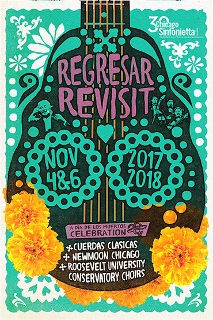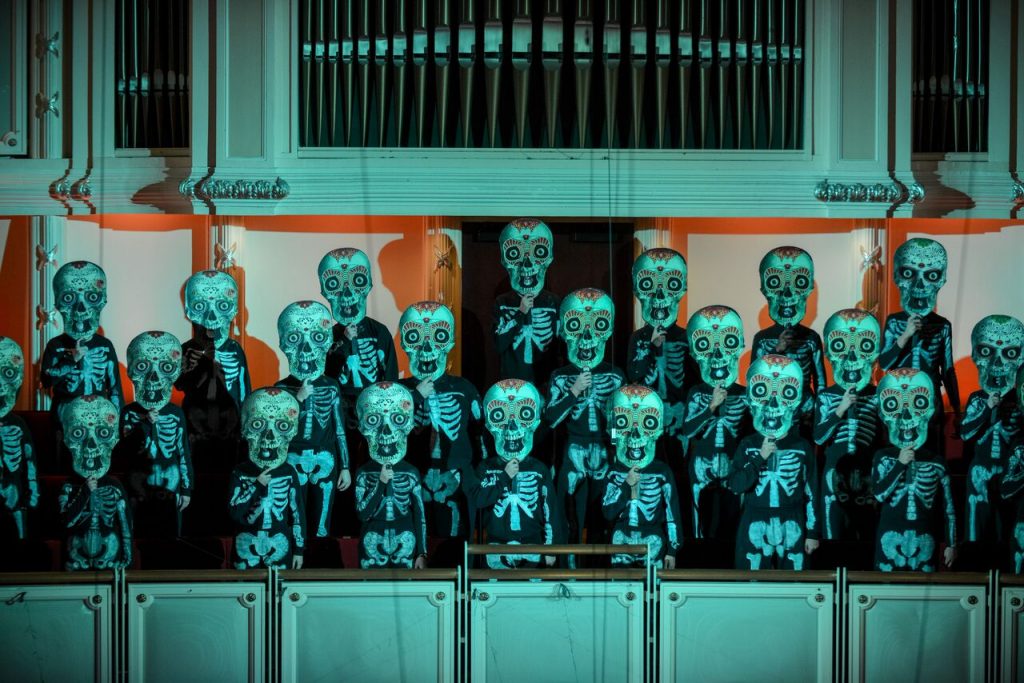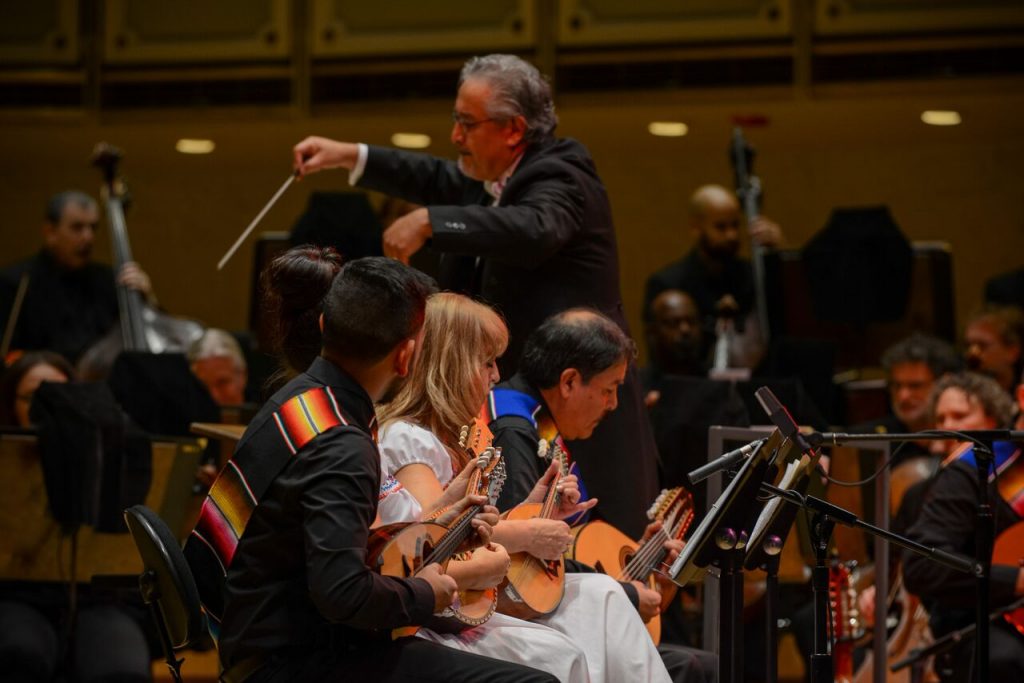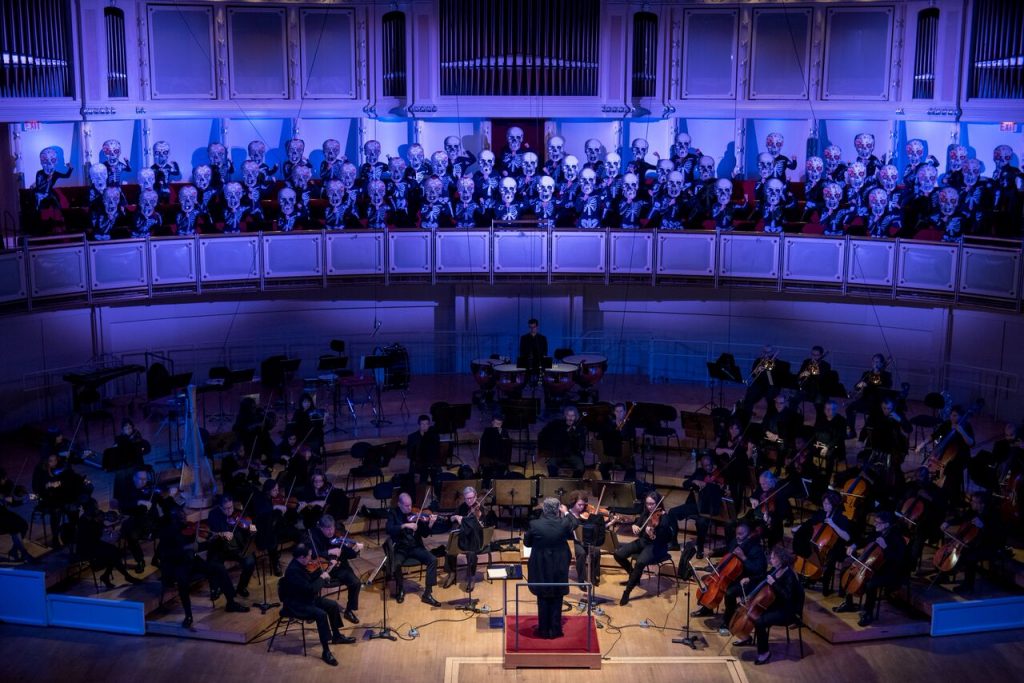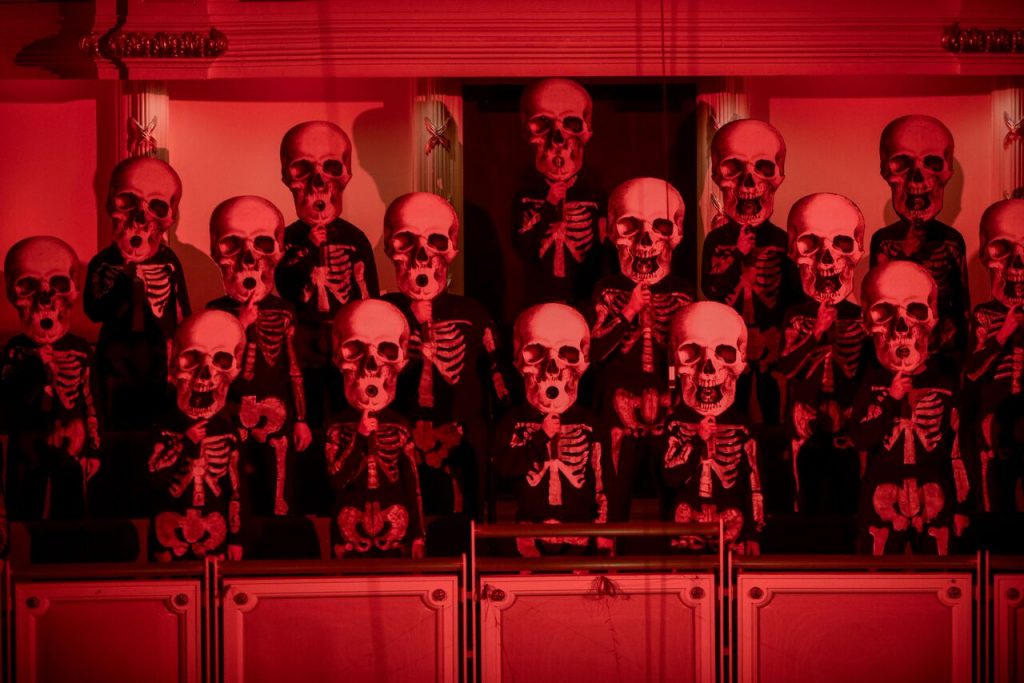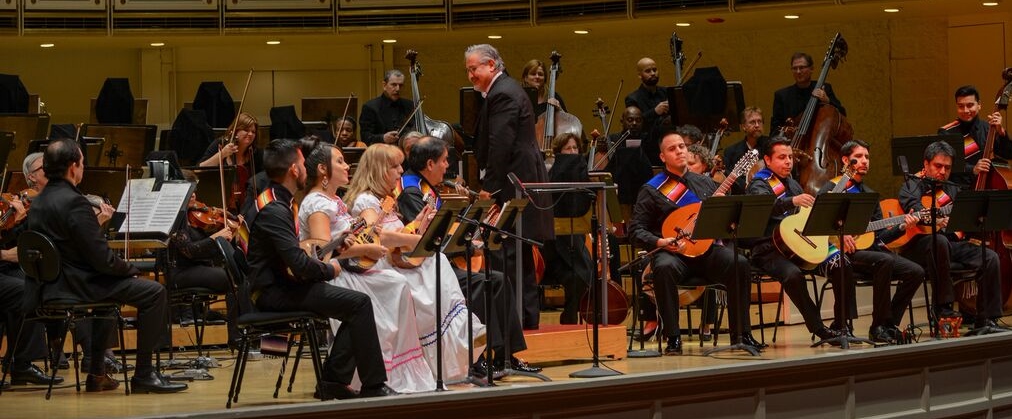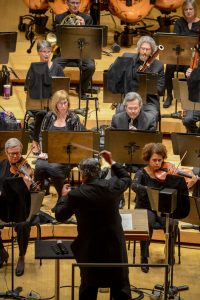DEATH DANCES TO LIFE’S BEATS
It took us from Mozart to Mexico. Now, alas, it’s over for another year—Chicago Sinfonietta’s much anticipated, annual A DÃa de los Muertos Celebration. Concluding at Chicago’s Orchestra Hall in Symphony Center, Regresar/Revisit was an unwasted opportunity to perpetuate the “Happy Halloween” of the Day of the Dead, which is celebrated on November 2. In much of the world All Souls’ Day, of course, is a welcome opportunity to bring the dead back’”not to life but to the living.
The Chicago Sinfonietta did it with a program of mainly Hispanic works performed before a Chicago cross-section crowd. They fully joined in the joy. Guest conductor Hector Guzman brought out the best in the esteemed musicians, a labor of love in every note. Now in its 30th season, this musical institution has become central to this city’s civic health and happiness.
A pulsating and dramatic opening, Astor Piazzolla’s Libertango raised the tango to new levels of contagious euphoria. The Argentine composer had a flair for fun: As much as the audience seemed to move with the music, you could almost imagine the orchestra dancing as they played.
A very different, darker vibe came from Silvestre Revueltas’s Redes, a score for a 1934 film about the hard lives of fishermen worked to death to get their catches. Moody as the sea, these excerpts from the documentary depicted, among other things, a child’s funeral, the fight against the elements, and the return of the fishermen with a dead friend. Sea sickness took on a new meaning.
Intense and intriguing, the eight excerpts from Mozart’s Requiem delighted and disturbed in ways the master might not have recognized or authorized. The masterful 70-voice ensemble, members of the Roosevelt University Conservatory and Alumni Chorus, were garbed in skeleton costumes, their faces painted as passive and leering skulls. To complete the effect, they sporadically covered their decorated visages with even bigger gibbering skeletal fan-masks, capriciously fragmenting the music into a kind of posthumous playground.
No question, the deathless music of the greatest composer’s final work remained inextinguishably wonderful. But, for purists at least, the distracting gimmickry of this overly literal dance of death did the divine Mozart no special favors.
Following the intermission, the concert sobered up with a wrenching rendering of “Aase’s Death” from Edvard Grieg’s Peer Gynt Suite No. 1. Suitably sad, it provided a sternly Scandinavian counterweight to the warmer resonances of the evening.
Bright and beautiful was Guadalajara composer Gori Cortés’s charming to enthralling orchestral pieces Marila, Un Cielo Para Ti and the exuberant Jalisco de Mis Amores. Unashamedly romantic and evocative, these combustibly cheerful selections were deftly accompanied by the nine enthusiastic guitars and double bass of Cuerdas Clasicas, a local group bedecked in colorful serapes.
Finally, C.S.’s tribute to our many departed ended on a fitly festive note. José Pablo Moncayo’s jaunty Huapango, a too seldom performed 1941 romp, is reminiscent of Aaron Copland’s El Salon Mexico. With its effortless gaiety, it has become a second Mexican national anthem, emblematic of a challenged nation’s irrepressible optimism. As you listened, you could imagine Diego Rivera’s murals turned to notes.
Viva los Muertos!
Regresar / Revisit:
A DÃa de los Muertos Celebration
Chicago Sinfonietta
Orchestra Hall of Symphony Center
reviewed November 6, 2017
(also played November 4 at the
Wentz Concert Hall in Naperville)
for more info, call 312.284.1559
or visit Chicago Sinfonietta
